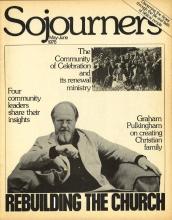Fellowship of Hope began six years ago with a vision of church life that was characterized by commitment and discipline. In many ways we felt that we were not experiencing this vision, nor did we see many others who seemed to know or experience it.
In retrospect, it seems that we were primarily a “community of the will.” While we firmly believe that the Holy Spirit was very present in our beginning and led us to our commitments, we can see how we have needed to become more of a “community of the Spirit.”
Significantly, we have met other communities whose experience seems opposite. They began with a more conscious awareness of the Spirit in their life but had little understanding of discipleship. Through the Spirit’s leading, the need for a deeper experience of commitment has been revealed to them. We meet together as communities created and sustained by the Holy Spirit seeking for more mature and disciplined commitment.
Becoming more of a “community of the Spirit” has begun to change us in a number of important ways.
For the first several years of our life, there was little emphasis on worship, prayer, or teaching. Increasingly, worship has become more central for us. There is an increased awareness that God is the center of our life together and a growing desire to consciously and explicitly recognize that center often.
We have discovered a new appreciation for teaching and the central importance of the Bible in worship. We continue to grow in our openness to all of the spiritual gifts the Lord wants to give us to enrich our praise and worship. It is more clear now that all of our ministry and witness must grow out of a clear awareness of God’s presence and purpose nurtured through worship.
Read the Full Article

